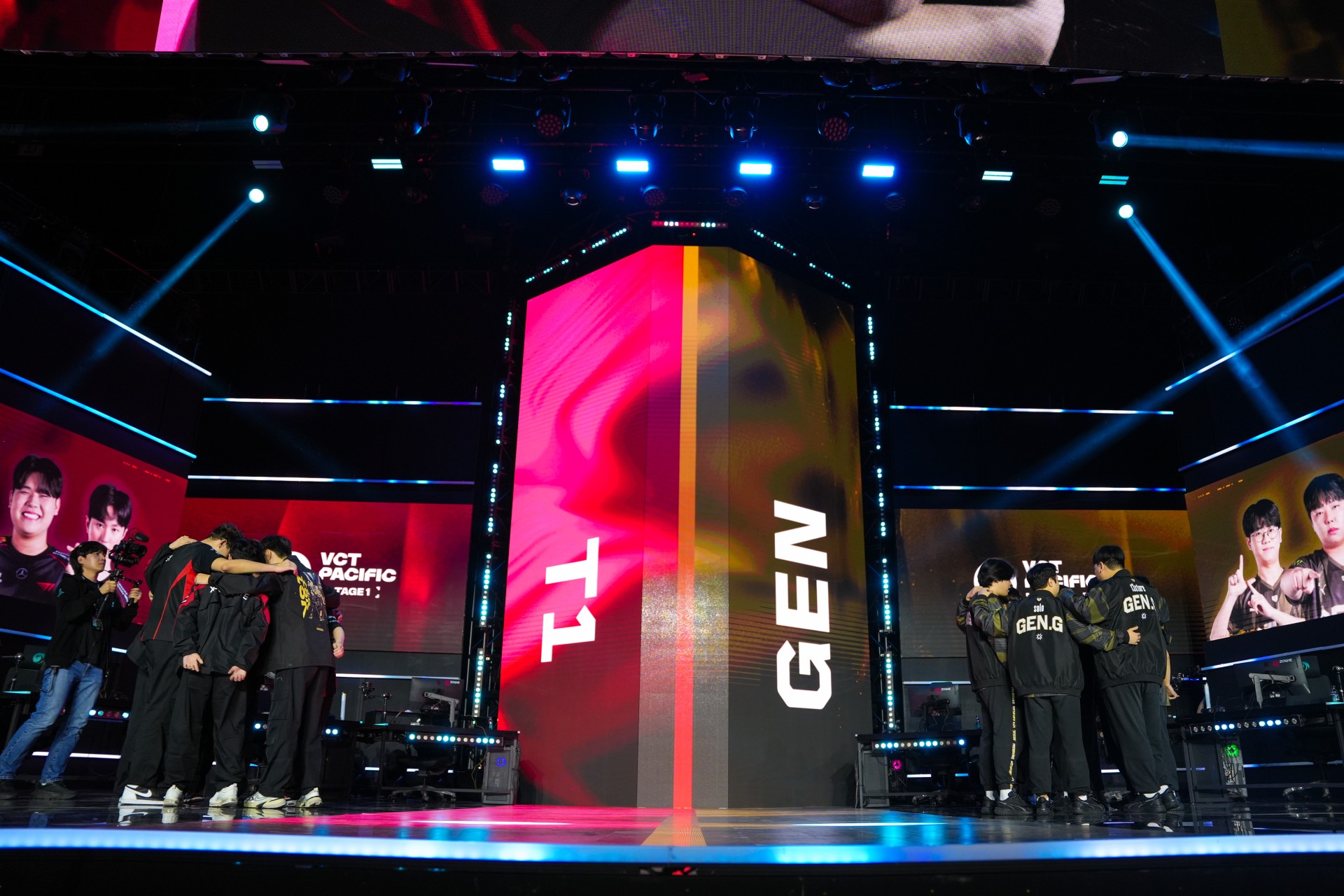
Inside A Coach’s Mind: Gen.G HSK & T1 Daeda
We sat down to talk with some of the coaches who will be representing the Pacific region at the upcoming VALORANT Masters Shanghai 2024 Swiss Stage.
SOUTH KOREA -- Gen.G’s coach Kim "HSK" Hae-seong, and T1’s Jacob "Daeda" Hale share their honest thoughts, insights, and mindsets moving into the upcoming Masters competition, and what makes their teams unique at the event.
Almost every aspiring professional competitor in esports starts out wanting to be a pro player and win it all, but coaches are arguably just as important in forming a successful team. For there to be structure, you need someone to help you develop that system and get five individual players to flow together effectively. Coaches are in charge of developing that, while also providing a different perspective out of the server after the game, breaking down analytics and statistics to the team, and even helping them make crucial team-wide decisions in timeouts during competition.
So who are these coaches? The best ones are well respected by both their teams as well as their opponents, and while a lot of them come from having previous professional player experience, it's their analytical minds and leadership qualities that are truly sought after.
Coming into VALORANT Masters Shanghai, each region has been given three qualification slots. For the Pacific, it's Paper Rex, Gen.G, and T1, and we had the opportunity to talk to some of the coaching staff from the latter two who will be playing in the opening Swiss Stage of the tournament, to get a look at the mindset of some of the brains behind Pacific’s finest teams heading into the second international event of the year.
GEN.G’s AWAKENING
Featuring Gen.G coach HSK
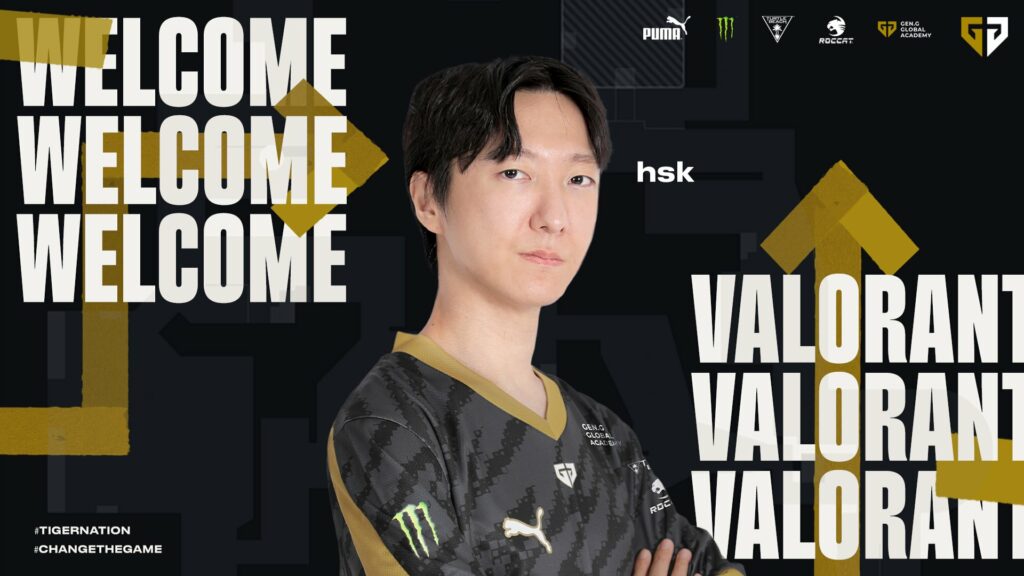
To better understand where the sentiments of the coaches are coming from moving into Masters Shanghai, let's contextualize their thoughts by looking back at their runs so far in the current VCT season.
For Gen.G, their incredible performance during the start of the season was unprecedented. Not only did they win VCT Pacific Kickoff, beating the defending champs in Paper Rex, but also played a full best-of-five in the grand finals of VALORANT Masters Madrid against North American powerhouse Sentinels, only losing in the fifth map to end their run at second place.
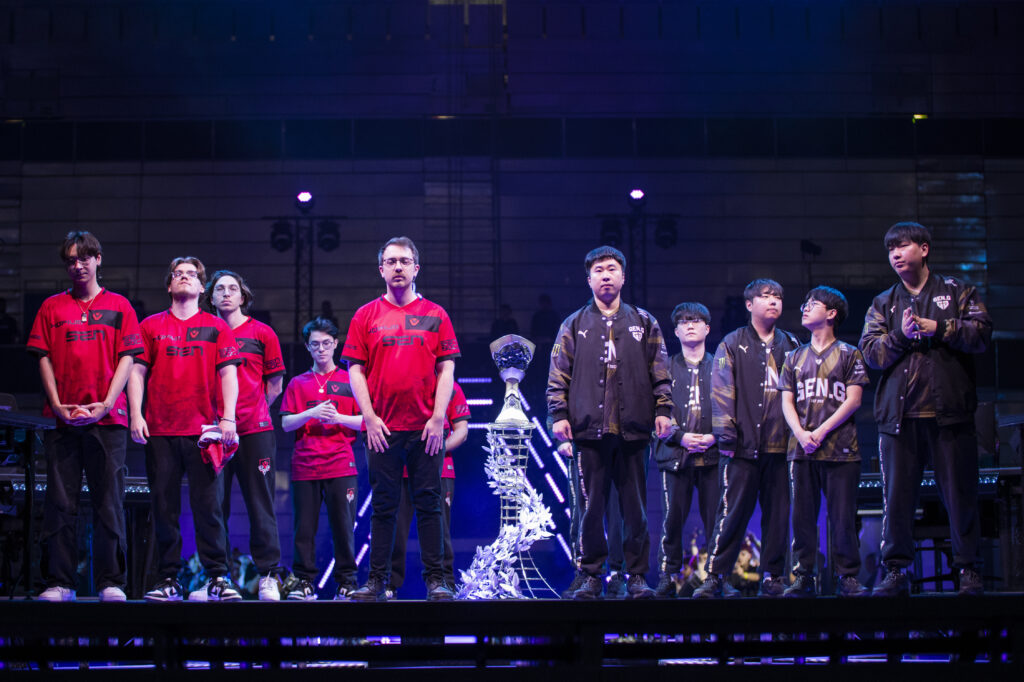
It was a surprise to many, as while the team looked incredible on paper, it was their first time playing as a full team together. Gen.G coach HSK mentions that “Since every team went through roster changes and there was no guarantee that they would stick to their previous playstyle, we absolutely focused on refining ourselves.” instead of trying to anti-strategize from the get-go.
This probably explains why we’ve seen incremental improvements in the team's performance every time we see them. Perhaps this is even partly the reason we saw them keep a relatively consistent agent composition on most maps aside from Breeze and Sunset since the start of the year—just food for thought.
Although their performance was such a surprise, it may have also benefited them in their run throughout Masters Madrid, as he states, “I think that we were underestimated, but I also think that was beneficial for us. Our opponents would certainly have been researching us, but I think it was easier to play our game when there was less attention on our team.”, but that was before they made a lot of noise in the VALORANT competitive space.
Since their incredible performances from the start of the year have brought so much more notoriety to the team, HSK adds,“I think we've become somewhat of a target because both in scrims and in officials, we've encountered similar protocols to our own.”
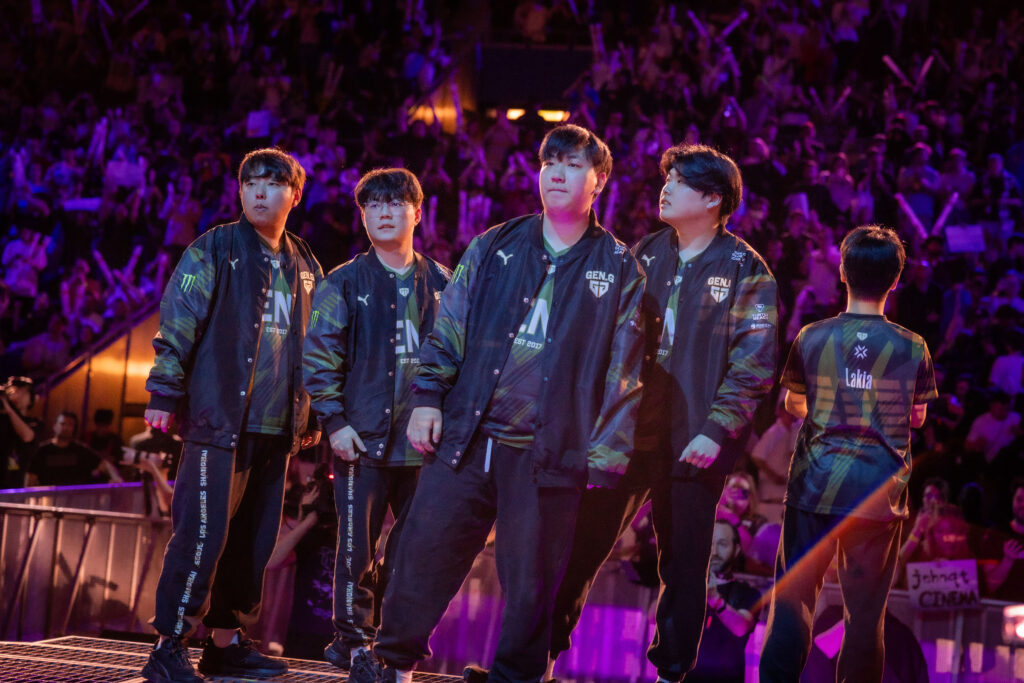
With him stating that they’re seeing teams take inspiration from their playstyle, if true, it is oddly reminiscent of the last great all-Korean team fans have come to know and love, DRX. A team when still under the Vision Strikers title back then, pioneered quite a few ideas and protocols into the scene of competitive VALORANT. The way the VCT is played today still has some of its roots embedded within the ideas teams like DRX developed back at the start of VALORANT’s competitive lifespan.
Gen.G on the other hand, while also having a full-korean roster, has brought something new to the table. When asked about what sets them apart from teams that employ the Korean playstyle, coach HSK mentions, “One of the characteristics of Korean teams is solid defensive mid-rounding, and even though we value that aspect of the game as well, I think that you have to be able to play well aggressively in VALORANT, which is where we put our focus. Our players are also good at making outplays and creating opportunities, and I think that's a difference between us and past Korean teams.”
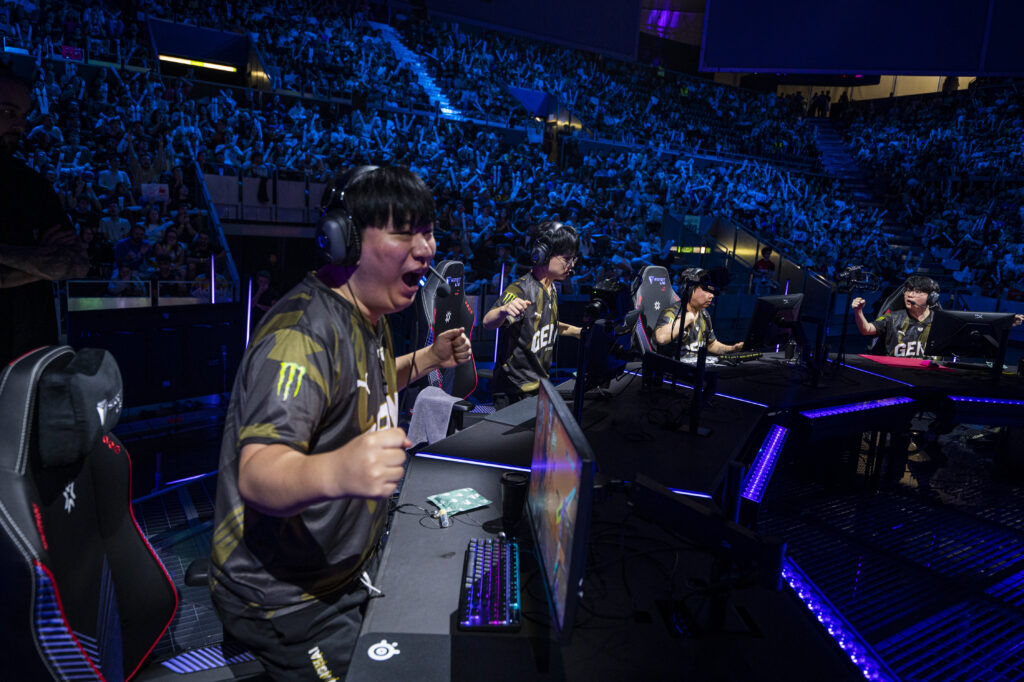
Having an all-Korean roster, especially with incredibly talented players, would mesh well together on paper, and importantly, having played with some of the other players on the team and coaching staff under different organizations in the past, was the perfect combination of factors to make a really, really good team in such a short time frame. One that immediately gelled together from the start, as said by coach HSK, “Having an all-Korean roster makes communication very easy. Also, I've been on a team with Kang 'solo' Keun-chul and Kim 'Lakia' Jong-min in CS:GO, and on a team with Byeon 'Munchkin' Sang-beom in VALORANT, so we have had no issues building chemistry since day one.”
But not everyone is a grizzled veteran of the competitive VALORANT esports circuit on this team filled with experienced players, as while there certainly are calloused competitors on the roster, some are a bit more callow. Inexperienced, one may say, but a player whose experience is a blank slate is one that veterans can more quickly incorporate into a team sometimes, due to them being more malleable without the tendencies one picks up throughout competing.
In this case, we are talking about Kim "Karon" Won-tae, who has been a very impressive younger pickup for the Gen.G squad. With his only prior recorded competitive matches being early on last year during the Challengers Korea Open Qualifiers, it surely was one that might’ve seen like a risk initially, but coach HSK shares that “Karon had already gained notoriety in ranked and since he already had an agent, we were able to reach out and trial him. Because his aim was simply on another level while the rest of our players were veterans, we needed a player who could be utilized by the veterans, and Karon was the best fit. Currently, he has developed a fantastic synergy with the other players.”
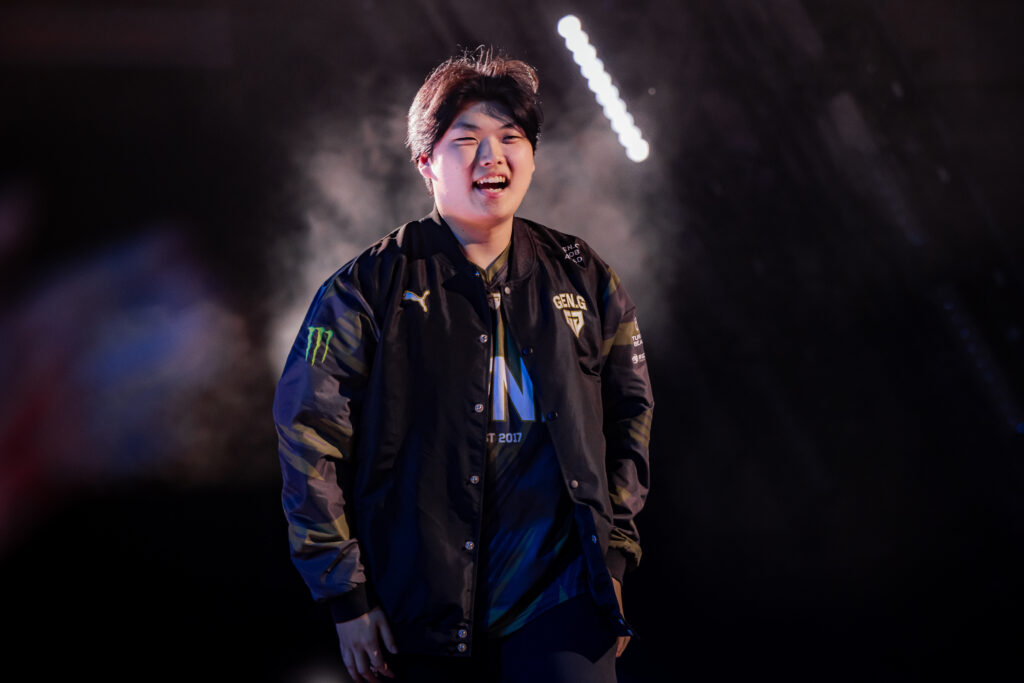
And this is shown in how he was quintessential at their Pacific Kickoff championship win and Masters Madrid 2024 grand final finish. It was clear after briefly talking to HSK that to look at just statistics would be a disservice to how well Gen.G Karon fits onto the team.
Something that also can’t be seen on the stat sheet is how well a player contributes to keeping the team grounded and composed during high-pressure and stressful moments in a match. Coach HSK notes that “Among the players, Meteor contributes the most in keeping the team calm and collected, while [Head Coach] solo fulfills that role within the coaching staff. Since solo joined the team, we've all been learning a lot from his leadership, and I'm always grateful for that.”
With such strong leadership behind the team on all fronts, it’s no wonder they are doing incredibly well in the short time frame they were given to prepare and organize themselves for VCT Pacific Kickoff, with most of their members only joining the team in the fourth quarter of last year.
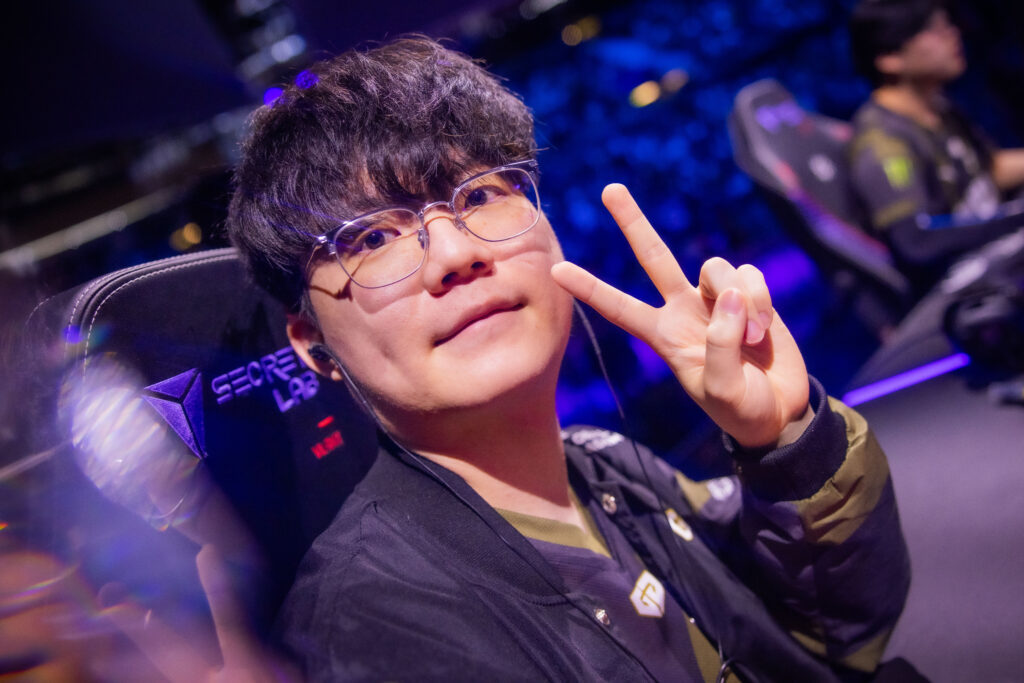
Luckily for them though, that gave them the exact experience needed to prepare them for the crunch-time preparation teams undergo before the start of global LAN events, as in HSK’s words “We haven't had a lot of time to prepare, but our atmosphere on stage and the quality of our practice have been improving significantly, so we'll do our best to perform well.”
For Gen.G, they’ve already completely written the narrative around the team based on their exceptional performance from the start of the season, surprising fans globally, and proving themselves to be an adversary other teams must be careful of treading.
As for who coach HSK thinks is the biggest threat in Shanghai though, he shares “I think the biggest threat is FNATIC. This season, they've been having a hard time since Kickoff, but they won with a reverse sweep in the Stage 1 Finals and it seems like their atmosphere is very good. As a traditional powerhouse hungry for international competition, FNATIC seems like a strong team.”
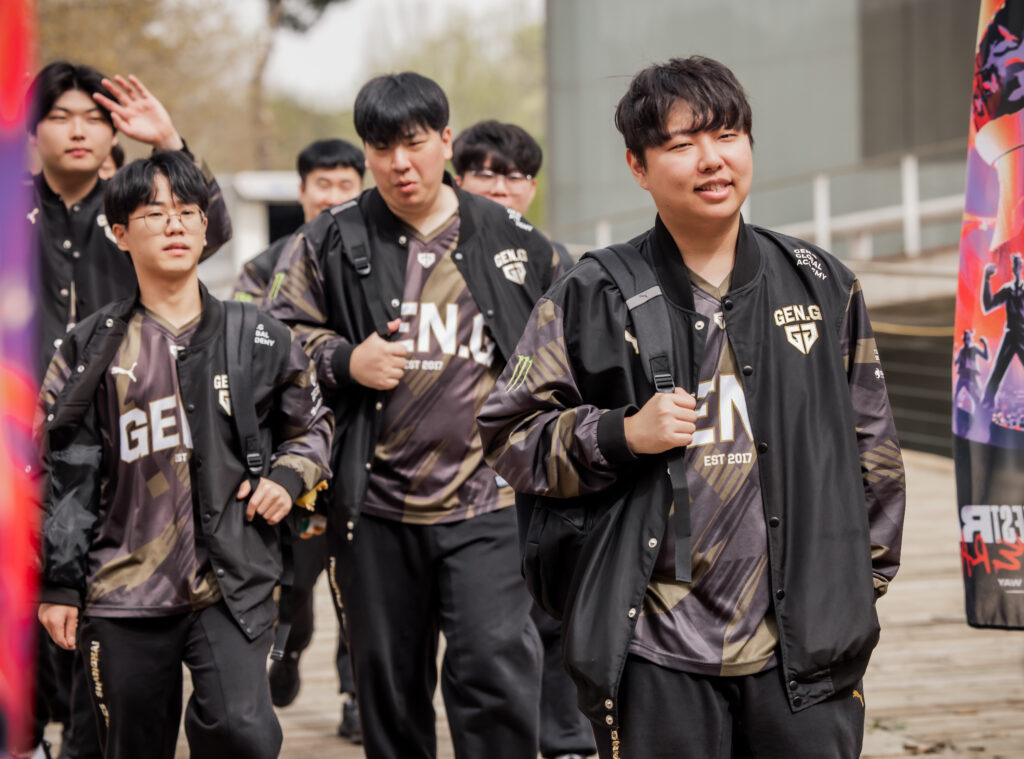
If there’s anything we’ve learned about Gen.G, it’s that no one should ever underestimate them, otherwise they might just prove those opinions untrue. Their unprecedented success to this extent has been incredibly exciting for the fans to watch, possibly creating a rivalry with the Pacific region’s fan-favorite in Paper Rex, but also establishing themselves as a real threat during global events for the championship prize. We can only anticipate what type of performance they’re going to give us during the Swiss Stage of VALORANT Masters Shanghai 2024
A NEW HOPE FOR T1
Featuring T1 analytical coach Daeda
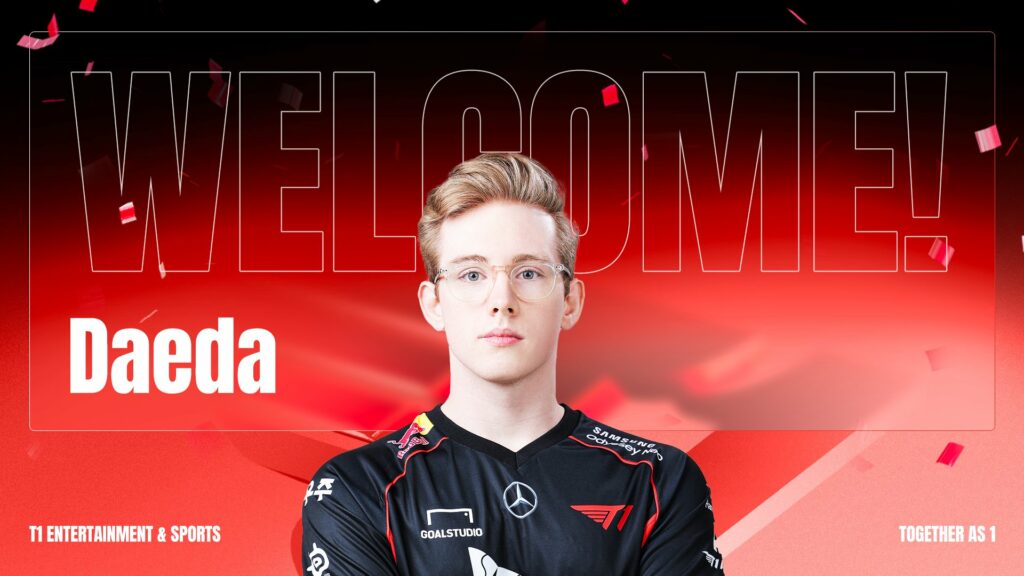
In contrast to Gen.G, T1 kept two of their star performers from the previous season in Lee "Carpe" Jae-hyeok and Ha "Sayaplayer" Jung-woo coming into the 2024 competitive year. But it’s two of their newer additions to the team that have got fans and followers of the VCT interested in this team, being Kevin "xccurate" Susanto and Daniel "Rossy" Abedrabbo. The former, being a well-known icon of SEA Counter-Strike, and of course the older brother of Paper Rex’s f0rsakeN.
A phenom in his own right, xccurate was a very storied pick-up for T1, even with his relatively limited competitive experience in VALORANT. But the opposite was true for Rossy, as he had been competing in the VCT from the very start, playing under multiple high-profile organizations and teams such as TSM, Faze Clan, and Turtle Troop prior to him joining T1 at the tail-end of last year.

And this contrast in backgrounds between the two players contributes a huge part in how the team develops their core strategic ideas, as T1’s new coach Daeda shares, “Both have extremely different mindsets on how to play the game compared to each other and the Korean core. None of their perspectives are wrong, as they all have their strengths, and if the team wants to be adaptive, having all three perspectives and talking through when one idea is good, then it just needs to be discussed and worked through as a team.”
This varied range of previous experiences all coming together is exactly what makes T1 unique. They’ve got players who have a history playing in North America in Rossy and Sayaplayer, the latter of which even played on T1’s NA roster before moving to The Guard; They’ve got players from the Korean region in izu and Carpe, with Carpe even coming straight from competing in Overwatch, as T1 was his first proper team on-record in competitive VALORANT; and as mentioned earlier, xccurate who’s played in the Indonesian VCT scene, but had the majority of his previous experience come from CS:GO.
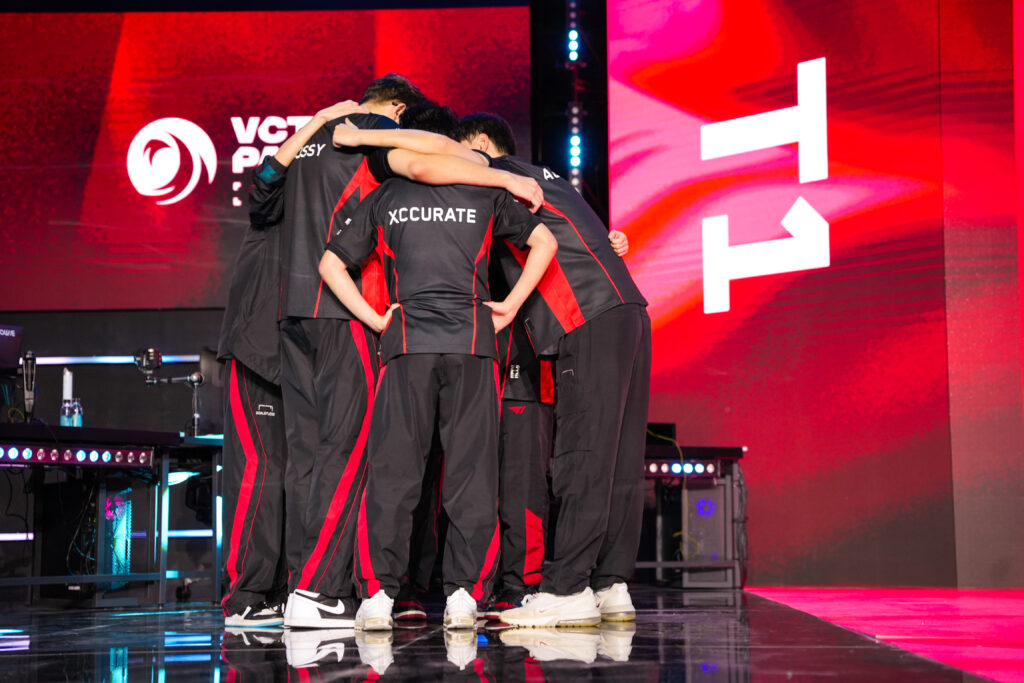
T1 is a melting pot of ideas, but it doesn’t end at just the players' side, as the coaches also have come from competing in different titles in the past. With head coach Yoon "Autumn" Eu-teum coming from coaching PUBG right before jumping into VALORANT, and coach Daeda hailing from Rainbow Six Siege in which he won a world championship under TSM as their coach, before switching to the organization’s VALORANT team, then joining T1 late last year, with a brief stint on Turtle Troop in between.
When asked about how different being a coach in VALORANT has been in contrast to his previous experience in R6, coach Daeda had this to say:
“R6 has a lot more strategic depth and I felt like I could make an impact on the meta, and the way maps played out through different concepts. In Siege you could, at least at the time I worked in it, win rounds strictly through strategy and refined teamwork. Whereas in VALORANT it is far more prevalent to take individual risks, which was a hard thing for me to overcome. I know I saw in some comments that it didn't make a lot of sense for an R6 coach to come into VALORANT, but as far as abilities and layering I think R6 is closer to VALORANT than CS/OW from the mindset I've seen from players and coaches. As far as transferable knowledge, there will always be parallels in the way 5v5 strategic MOBA FPS functions, but even beyond that coaching people will be the same regardless of the sport you come from. If you can manage to do both the game side and the individual side, it's more power to you.”
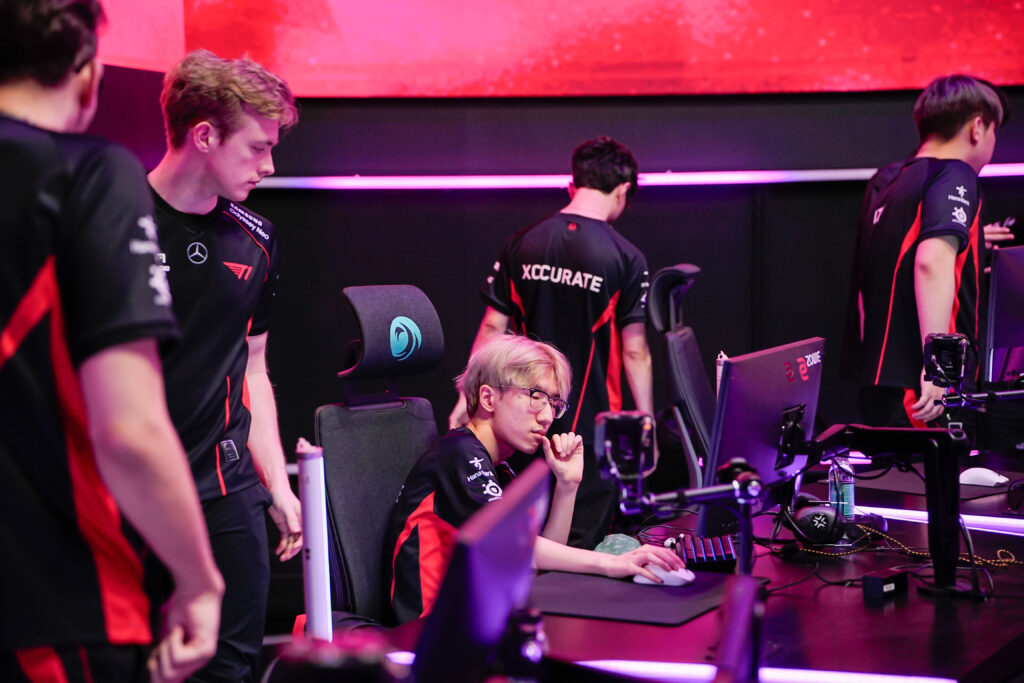
Yet, with all these multiple layers of experience and sources to draw from, T1 have yet to really find their stride, as it has been a learning process for the team, as Daeda mentions: “Even if it doesn't show, we really want to adapt to different opponents and find solutions that work for every scenario. Sometimes we need to simplify to win, and definitely recently we have been slow on those adaptations, but I think with the more time we run this system, the more impactful it will be.”
He also states in regards to how different coaching T1 is compared to his former teams “T1 is interesting for coaching compared to previous rosters, because of the pedigree that the organization tries to pursue, you're provided a lot of resources with the added pressure of trying to take something new and bring it up to the same level as the League team, which is a very steep mountain to climb. In TSM R6, we had to claw from the bottom, TSM Valorant was making due with what we were given but there wasn't a language barrier to have to overcome, because it wasn't just knowing or not knowing a language but rather how natives of a given language think and how to try and get into the same mindset.” Having such a distinctive range of ideas on this team is certainly a unique task for any coach to face.
Based on what he’s shared with us, perhaps getting all these pieces to mesh well together was a bit more of a challenge for the team, as even if they are all exceptionally talented in their own rights, the team had a rocky start at the onset of the Pacific League regular season, losing 4 out of their first 5 matches played.
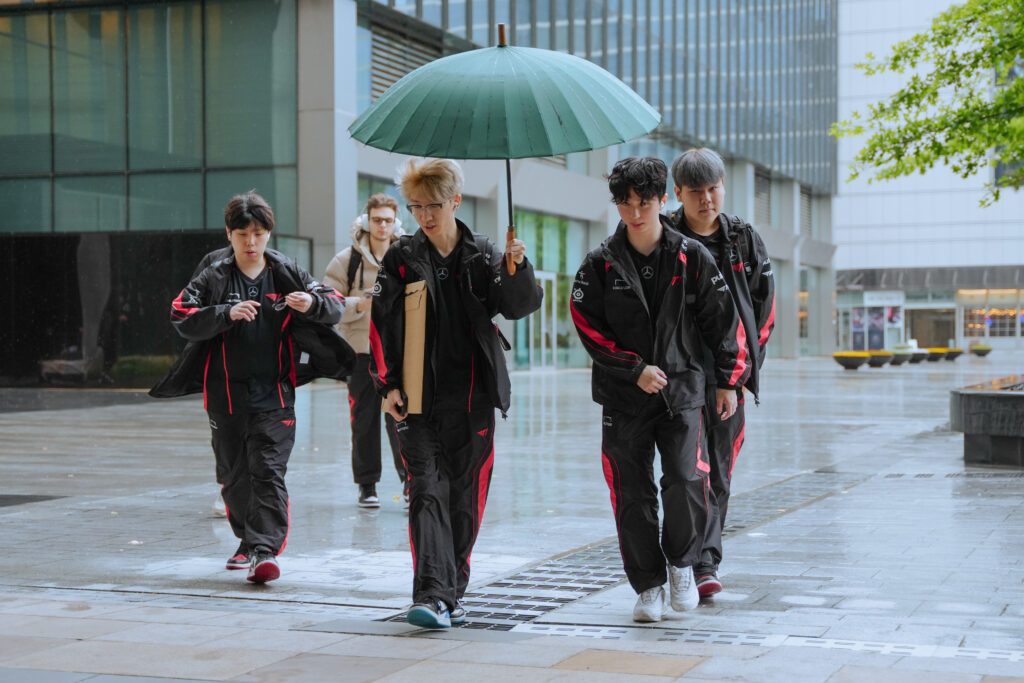
But they bounced back, and T1 qualified for VALORANT Masters Shanghai at the end of the playoffs. This progress in their play was attributed to them focusing on their strengths, instead of zeroing in too much on their weaknesses, as stated by Daeda once more “I think each win and loss the past stage was us overcoming or trying to overcome individual issues. While some losses looked worse than others, the team was committed to changing for the better. I think one of the biggest issues we've seen within the team is managing momentum and energy, especially against opponents with a good team philosophy. We started the season by breaking down every issue we had, which in turn led to breaking down in confidence at an individual and team level if you don't balance it properly. It can be a very vicious habit to get.
I actually had a conversation with ENGH from KCORP a few days ago where he said he felt the same issue with taking a rookie roster into international events where you get a lot of negative experience and see a lot of mistakes, and it's easy to forget your strengths as a team or even as an individual, player or coach. I really think that's something that any team can struggle with, whether at the bottom or the top. You see teams say they "didn't play their own game" or like us "didn't play like we do in scrims", and it really is your strengths that you forget to identify with. That's what we're looking to find this event and have a chance to redeem ourselves coming into these matches.”
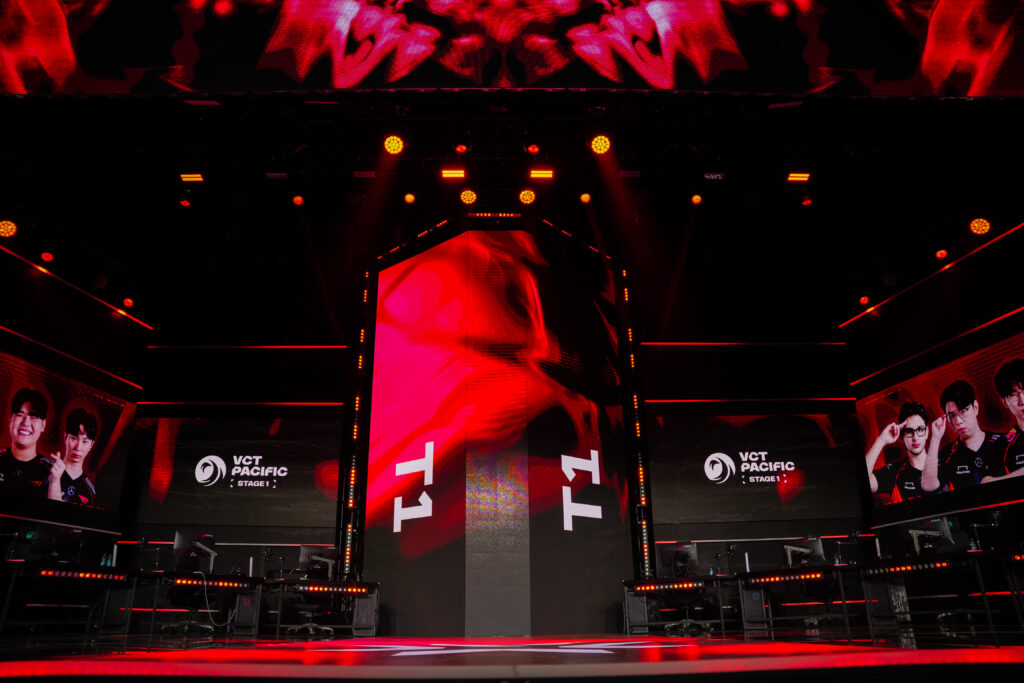
Fortunately for the squad, even within the team, they’ve got reassuring leaders in some of the players, as Daeda commends Sayaplayer, on how he helps realign the team during tough matches:
“Saya is very practical, he has a strong opinion on what is working vs what isn't in the moment which can realign the team, but I really think everyone pitches in to set the focus right depending on the issues that arise.”
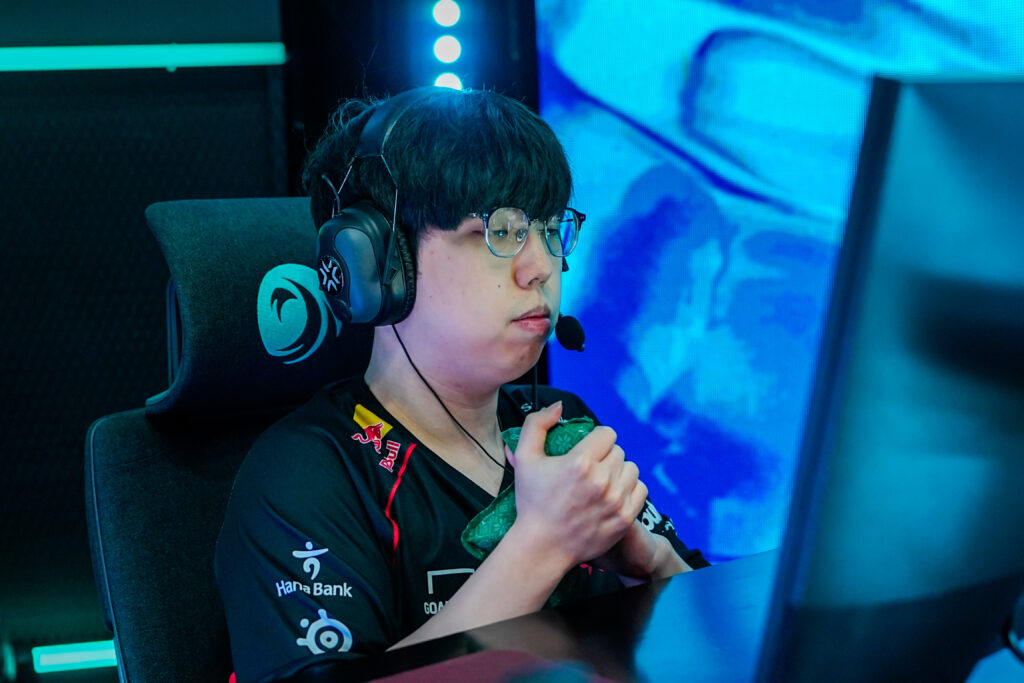
All these factors make T1 one of the most interesting teams to follow coming into Shanghai. An assembly of exceptional individual talents, with extensive knowledge and expertise drawn from a broad scope of previous experience, gives us an exciting collage to keep our eyes on.
They may have yet to pull the same notice the other qualified Pacific teams have with their previous global performances in Paper Rex & Gen.G, as T1 Daeda acknowledges “I think it's reasonable that everyone underestimates us, we've played without consistency or confidence for 2 months so we deserve to be. I just want to believe we can overcome our instability and prove ourselves and grow in the right direction.”
Yet perhaps similarly to Gen.G’s case, this could benefit them, as we recall Gen.G coach HSK mentioning being underestimated definitely helped them in their Masters Madrid run. This possible advantage could certainly be of use, as T1’s first scheduled match is against the VCT Americas Ascension winners core in G2. Though either way, coach Daeda is feeling confident about their upcoming matchup, mentioning previous familiarity with their opponents:
“I think we're feeling good about meeting G2 in our upcoming match. They're a very strong team that I got to fight against in Ascension last season. They earned their spot in tier one and have stuck by their team philosophy, so I can only expect them to be an even harder opponent to overcome.”
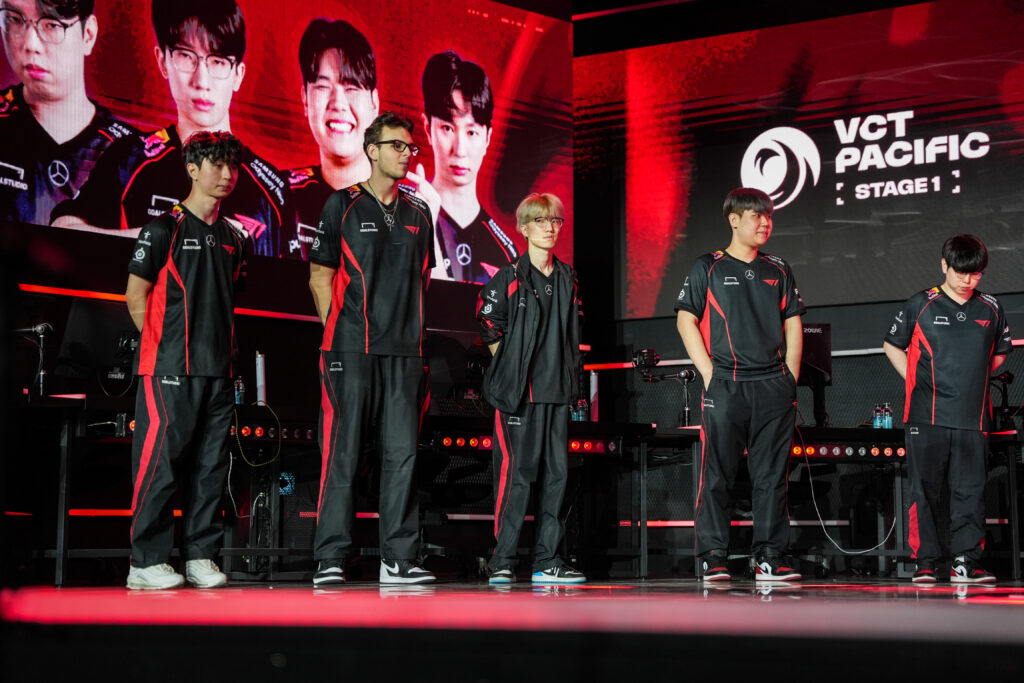
Ultimately enough, teams can only try their best to make a mark and get as deep into each tournament run as possible. And while immediate success, such as what we saw from Gen.G at the start of the 2024 calendar would be ideal, there is great value in building up to that level and aiming for long-term success, as shared by T1 Daeda, in regards to their expectations of this upcoming Masters event:
“Of course every team wants to win, but it's about the path getting there that matters more to us. If you can have a lasting system and direction that everyone buys into and you can maintain, you'll see success long term. Short term, we want to find those strengths to make into the pillars we rely on long term for T1 VALORANT.”
Gen.G and T1 are the two Pacific teams that will be competing in the Swiss Stage of Masters Shanghai, and for fans of Pacific VALORANT, getting to peer directly into the insights of some of the coaching staff of each team is an acute way to deeper understand the mindsets the teams are entering the event with, and further anticipate the excitement a global LAN event brings to VALORANT fans everywhere.
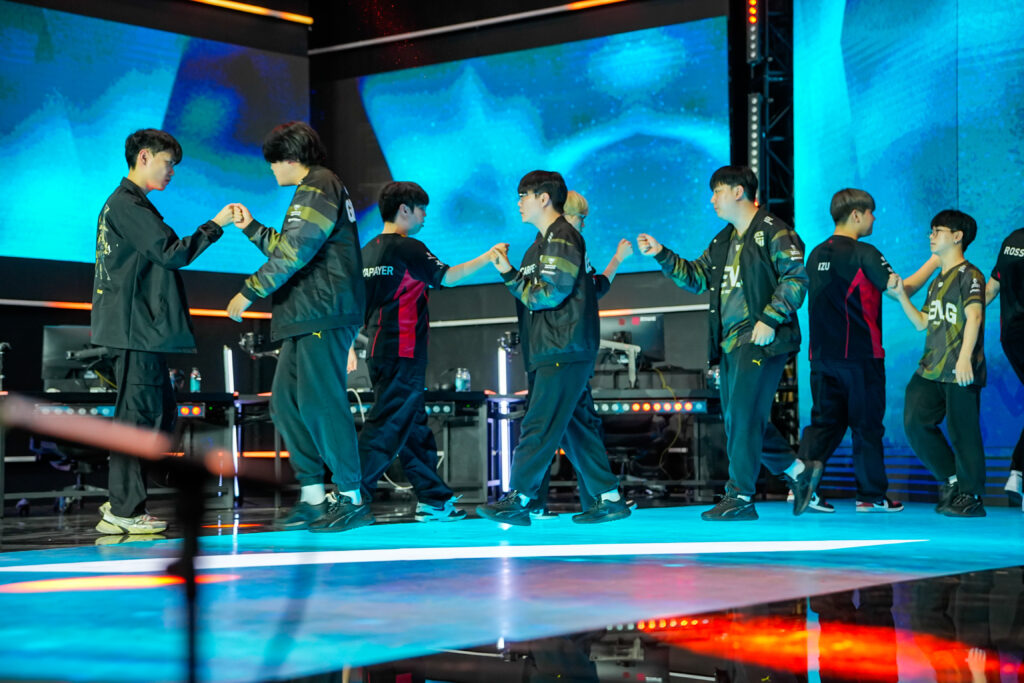
As for the #1 seeded Paper Rex, they’ve been seeded directly into the playoffs, of which we’ve interviewed coach Alecks regarding his thoughts on the team, but stay tuned to VALO2ASIA for that piece sometime soon.
For more insights on the Asian VALORANT scene and upcoming content like this, be sure to like and follow VALO2ASIA on Facebook, Twitter & Instagram.
Cover photo courtesy of VCT Pacific
